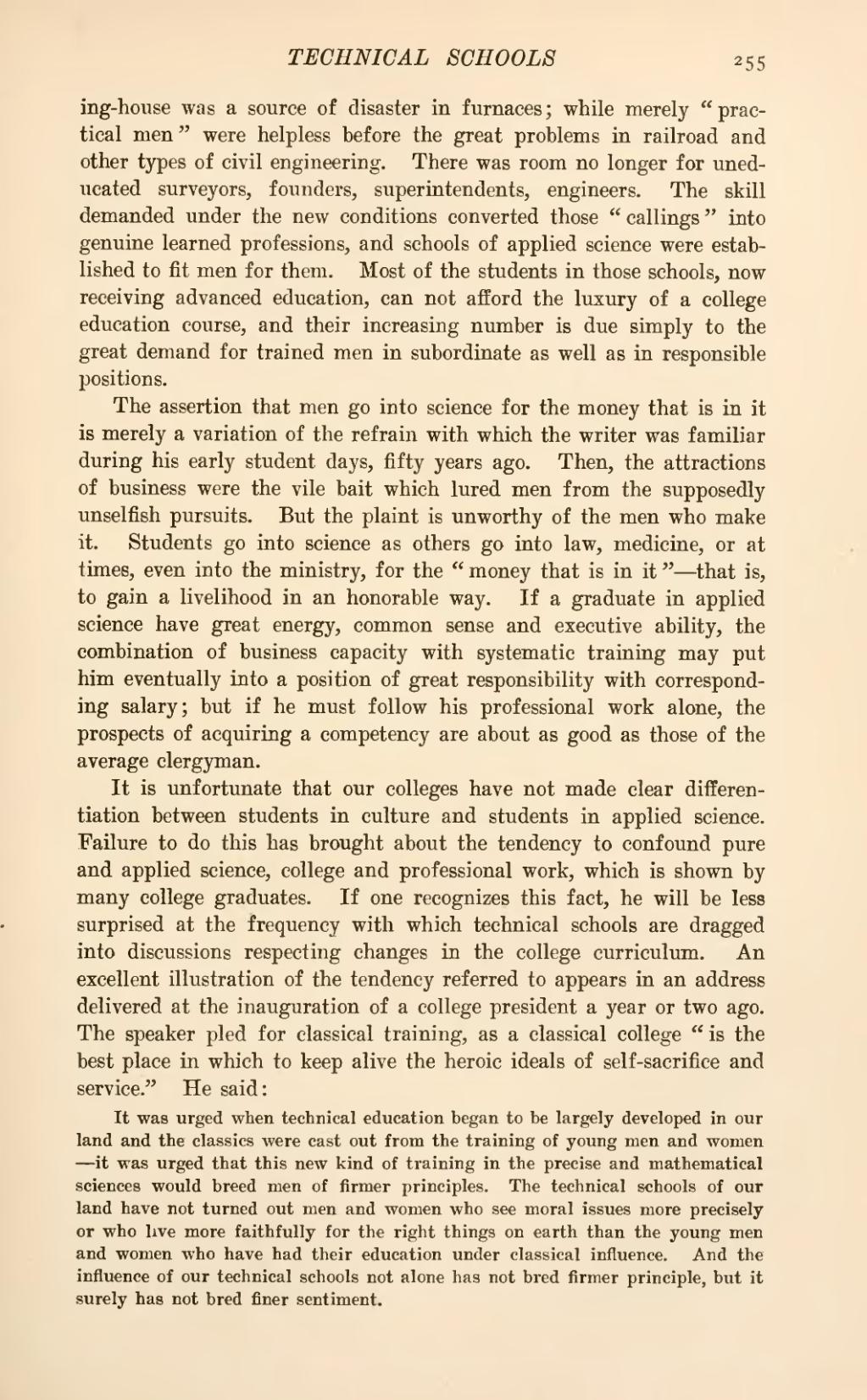ing-house was a source of disaster in furnaces; while merely "practical men" were helpless before the great problems in railroad and other types of civil engineering. There was room no longer for uneducated surveyors, founders, superintendents, engineers. The skill demanded under the new conditions converted those "callings" into genuine learned professions, and schools of applied science were established to fit men for them. Most of the students in those schools, now receiving advanced education, can not afford the luxury of a college education course, and their increasing number is due simply to the great demand for trained men in subordinate as well as in responsible positions.
The assertion that men go into science for the money that is in it is merely a variation of the refrain with which the writer was familiar during his early student days, fifty years ago. Then, the attractions of business were the vile bait which lured men from the supposedly unselfish pursuits. But the plaint is unworthy of the men who make it. Students go into science as others go into law, medicine, or at times, even into the ministry, for the "money that is in it"—that is, to gain a livelihood in an honorable way. If a graduate in applied science have great energy, common sense and executive ability, the combination of business capacity with systematic training may put him eventually into a position of great responsibility with corresponding salary; but if he must follow his professional work alone, the prospects of acquiring a competency are about as good as those of the average clergyman.
It is unfortunate that our colleges have not made clear differentiation between students in culture and students in applied science. Failure to do this has brought about the tendency to confound pure and applied science, college and professional work, which is shown by many college graduates. If one recognizes this fact, he will be less surprised at the frequency with which technical schools are dragged into discussions respecting changes in the college curriculum. An excellent illustration of the tendency referred to appears in an address delivered at the inauguration of a college president a year or two ago. The speaker pled for classical training, as a classical college "is the best place in which to keep alive the heroic ideals of self-sacrifice and service." He said:
